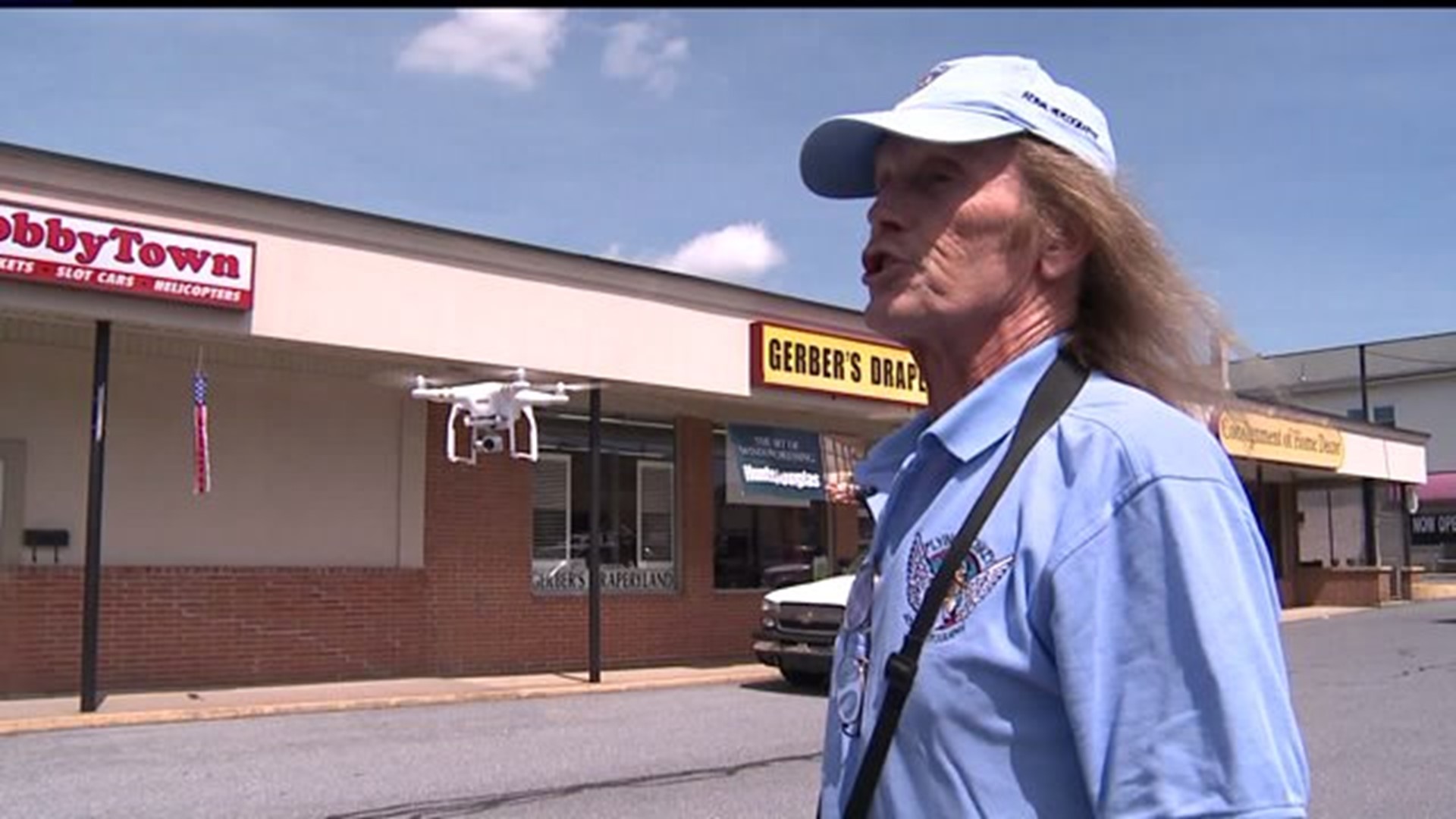HARRISBURG, Pa. -- Students at Harrisburg University of Science and Technology's geospatial technology course aren't able to make money using the in-class drone yet. Their professor, however, is making sure when they are able to, every one of them will be prepared.
Albert Sarvis recognizes the future of small unmanned aircraft, more commonly referred to in society as drones. Federal Aviation Administration regulations will soon go into place, giving companies easier access to fly drones for business.
"The barriers and hurdles to get into commercial drones has been significantly lowered," Sarvis says.
On Monday, the federal rules which currently force commercial drone users to go through the lengthy and costly process of earning a professional pilots license will change. Instead, drone operators will only need to handle a book-based test.
Commercial drone users will still need a background check completed by the Transportation Security Administration, and must adhere to all current flight rules, including regulations that one must be at least 16 years old, can only fly from sunrise to sunset, must stay within 400 feet of the ground and maintain visual contact of the drone at all times. Users also must avoid flying their drone within five miles of an airport.
"It's a good thing for business. It's a good thing for opportunities we haven't even thought of," Sarvis said. "It is, unfortunately, it needs to be regulated, at least observed with responsible users."
Industry experts estimate the new rules will lead to a boom in the U.S. economy, generating $82 billion and creating 100,000 new jobs in the next 10 years.
Some of those jobs could go to Sarvis' Harrisburg University students. Drone use will be particularly useful in Central Pennsylvania when it comes to agriculture. Drones with the right sensors, he says, can help determine the health of crops from a bird's eye view.
"These are tools," he says, "not toys."
However, more drone use by business owners means a more crowded airspace, and that potentially could lead to safety concerns, according to current commercial drone pilot Gordon Bennett.
Bennett, of Mechanicsburg, owns Flying Monkey Aerial Videography, and has flown remote controlled devices for nearly 50 years, he says. He earned his commercial drone pilot license the old fashioned way, taking him 303 days and costing over $300. The new, written test will only cost $150.
"The people taking the (new test) will never be as proficient," Bennett argues, adding he's flown since he was 11 years old. "By putting untrained, unprofessionals in airspace, you're jeopardizing everybody, including me."

